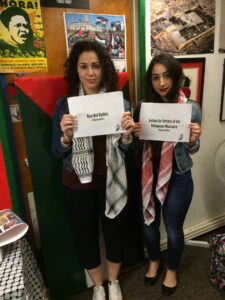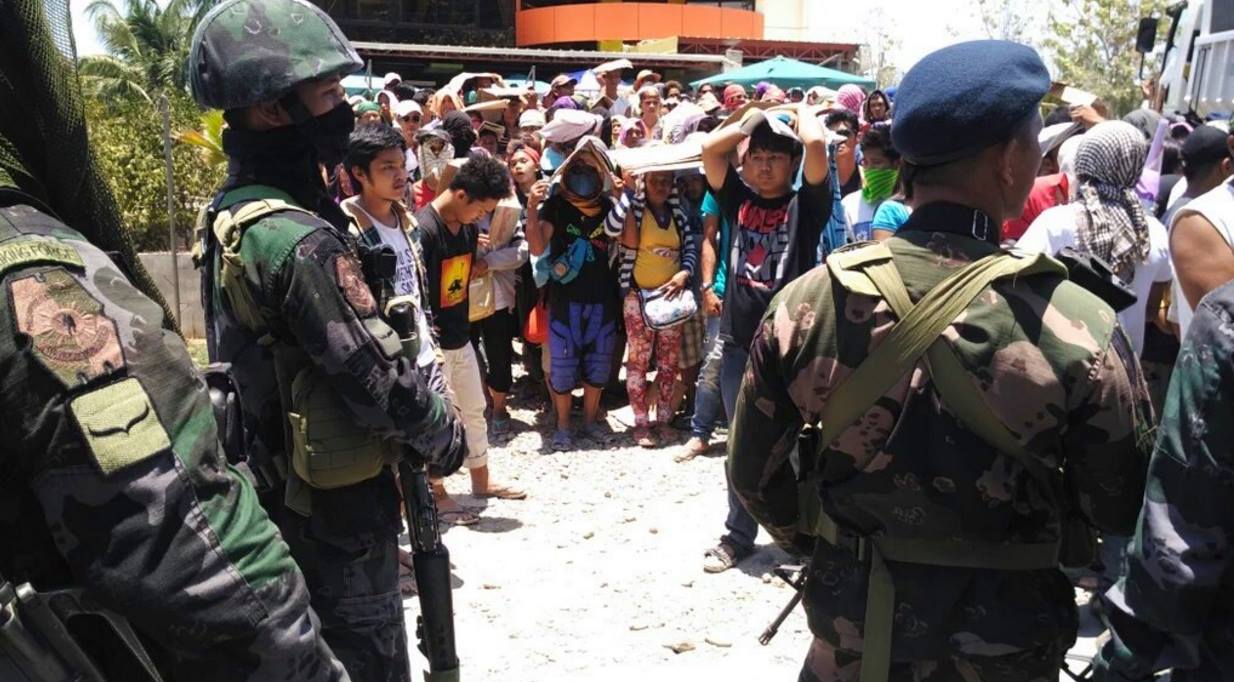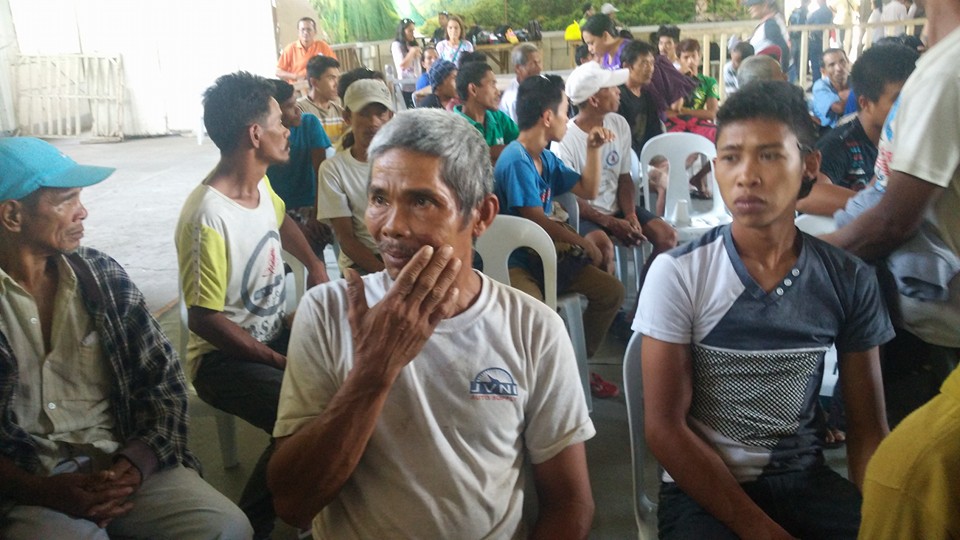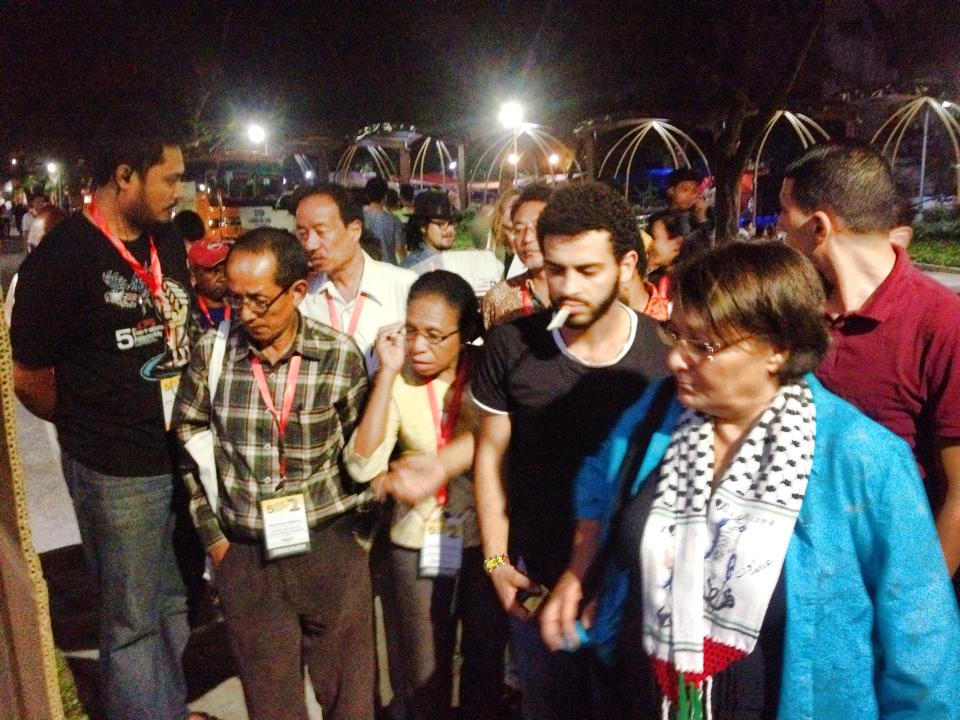Samidoun Palestinian Prisoner Solidarity Network stands with the farmers and indigenous people of the Philippines facing killings, mass repression, imprisonment and criminalization. We salute the people’s movement of the Philippines and its relentless struggle for justice in the face of violent repression.
On 1 April, over 5,000 farmers and indigenous Lumad people gathered on the Kidapawan Highway in Mindanao to protest for food distribution, emergency aid and the demilitarization of their communities. Hit hard by climate change – itself strengthened by Philippine government policies that prioritize multinational and US corporations’ exploitation of the land while driving indigenous people and peasants from their lands – and El Nino, farmers called for the release of 15,000 bags of emergency rice aid. Rather than aid, the farmers were confronted by an attack by the Philippines National Police, who fired on the crowd, killing three and injuring 161, violently dispersing thousands of farmers and forcing them to seek refuge in the local area.
Since the violent state attack on their protest, the farmers and indigenous people have been met with ongoing attacks and criminalization. 78 farmers were arrested and jailed, while the United Methodist Church where farmers took refuge has been surrounded by militarized police and army. At least 73 farmers are still imprisoned without charges, including pregnant women and children; they will most likely need to post 6,000-12,000 Philippine Pesos as bond, an extreme hardship or impossibility for peasants and subsistence farmers protesting for food assistance. Among the 43 men and 35 women arrested is Lumiriano Agustin, 47, currently being held in Kidapawan gym. He was an eyewitness to his companion dying after being shot in the head by uniformed men. Anakbayan reports that “Agustin was dragged, arrested, beaten up by the police, hit by rifle butt while he was cuffed.”
The food scarcity suffered by peasant farmers and indigenous people in the Philippines is not a natural disaster, but, as ILPS Canada wrote, “the social disaster that is imperialism, bureaucrat capitalism and feudalism…that continues to plunder the rich resources of the Philippines.” The United States and Canada provide extensive funding and training to the Philippine National Police that carried out this attack, often focused on “counter-terrorism” or the criminalization of popular movements for justice. The “anti-terror” framework is used to justify and legitimize attacks on protesting peasants and indigenous people and create a climate of impunity, while criminalizing people coming together to call for their basic rights, and the vibrant mass national democratic movement of the Philippines.

In Palestine, organizers of agricultural workers, farmers and fishers face organized state terror and violence at the hands of the Israeli occupation forces. Farmers and fishers in Gaza daily risk death as their land is deemed a “no-go zone” and their fishery waters deemed “outside the limits” by occupation forces. Land defenders and organizers of agricultural workers, including members of the Union of Agricultural Work Committees, have been repeatedly targeted for arrest, imprisonment and administrative detention without charge or trial by the Israeli state.
Palestinians have been struggling to hold on to their land against Zionist colonialism, supported by US, Canadian and European imperialism, for the past 100 years. When Leila Khaled, Palestinian resistance icon and present-day political leader, visited the indigenous Lumad encampment, working to defend their land against corporations and the state, she said: “We Palestinians are deprived of our homeland, you are deprived of your land. We have to unite and struggle against the inhuman enemies we are facing. We are all in one trench. If we unite and coordinate our struggle, we will be victorious.” Khaled was joined in this visit by Mohammed Khatib of Samidoun.
From Palestine to the Philippines, from the besieged farmers and fishers of Gaza to the farmers of Mindanao, from the indigenous people of Palestine seeking return and liberation to the indigenous Lumads of the Philippines, from the Palestinian prisoners in Zionist jails to the political prisoners of the Philippines’ peoples movement jailed for their struggle, struggles for liberation, against imperialism and colonialism, and for justice march together.
Samidoun Palestinian Prisoner Solidarity Network extends its support and solidarity and encourages all friends and supporters of Palestine and the Palestinian struggle to join international events and actions calling for justice and accountability for the Kadipawan Massacre and for the people of the Philippines.
Discover more from Samidoun: Palestinian Prisoner Solidarity Network
Subscribe to get the latest posts sent to your email.







